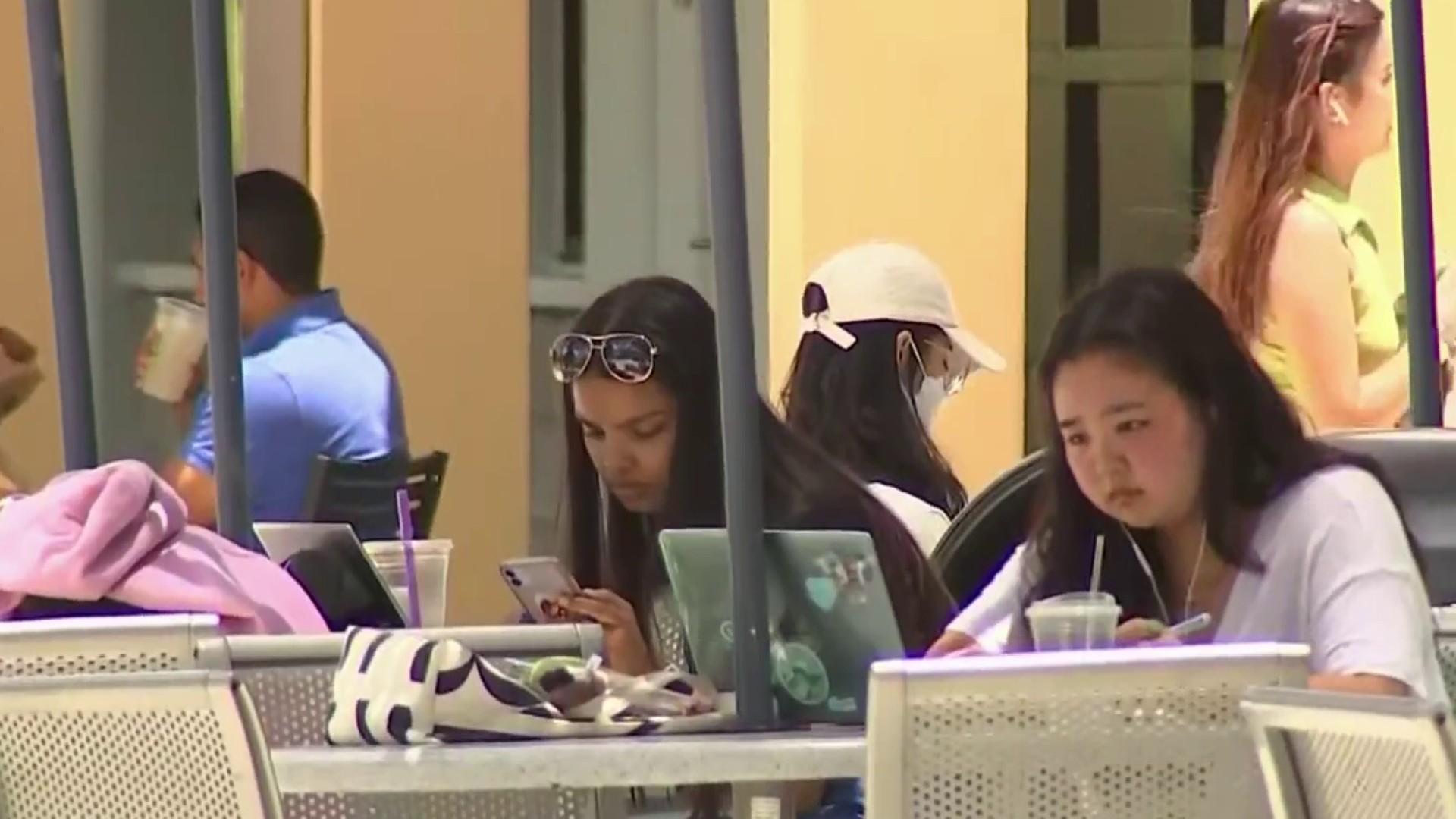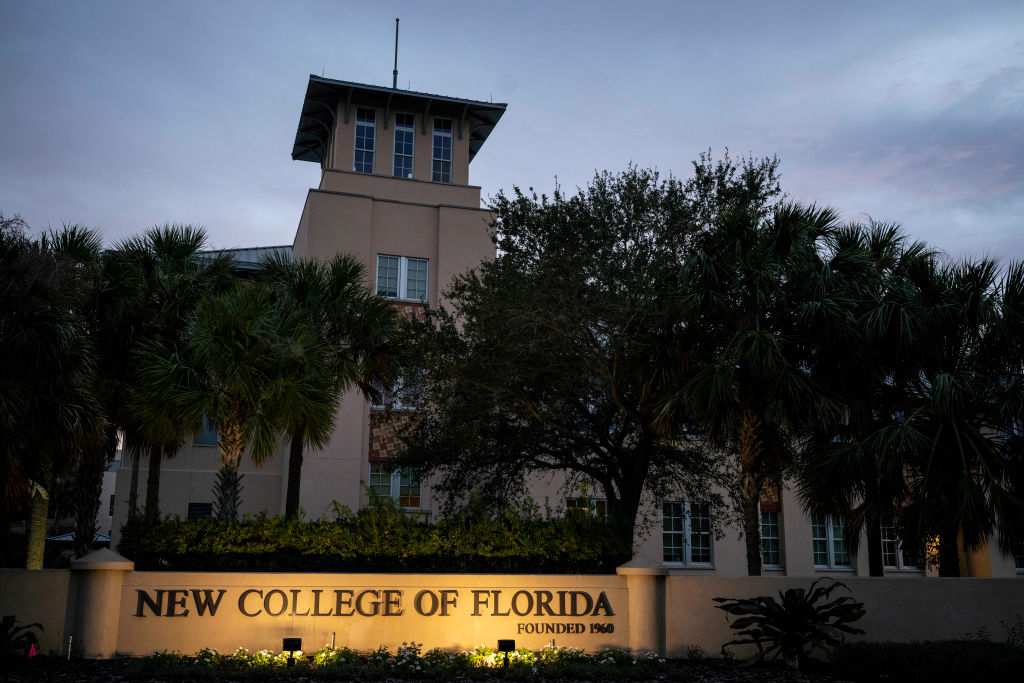Florida Gov. Ron DeSantis on Monday signed a bill that blocks public colleges from using federal or state funding on diversity, equity and inclusion programs.
"On its face, I mean when I see diversity, I think like different viewpoints, have a robust academic discussion in the university, isn't that what they're for?" DeSantis said at a bill signing ceremony in Sarasota. "In reality, what this concept of DEI has been is to attempt to impose orthodoxy on the university, and not even necessarily in the classroom, but through the administrative apparatus of the university itself."
WHAT DOES THE NEW BILL DO?
The law, SB 266, blocks public universities from diverting state or federal funds toward programs or campus activities that advocate for diversity, equity and inclusion or promote political or social activism.
Get South Florida local news, weather forecasts and entertainment stories to your inbox. Sign up for NBC South Florida newsletters.
The measure also bars curriculums that teach "identity politics" or "theories that systemic racism, sexism, oppression, and privilege are inherent in the institutions of the United States and were created to maintain social, political, and economic inequities." The provision is aimed at curtailing education about critical race theory, a way of thinking about U.S. history through the lens of racism.
It takes effect on July 1.
MORE ON DEI
WHAT DOES DESANTIS SAY ABOUT THE BILL?
DeSantis, a Republican, chose to sign the bill at New College of Florida, a small, traditionally-progressive school that became nationally known this year after the governor appointed a group of conservatives to its board of trustees. Among the DeSantis appointees' first moves was to eliminate the New College's DEI office.
DeSantis said the bill will "reorient our universities back to their traditional mission," saying the relatively recent emphasis on DEI takes away time from recruiting teachers and promoting things like STEM courses.
"Part of that traditional mission is to treat people as individuals, not to try to divvy them up based on any type of superficial characteristics, we're gonna elevate merit and achievement above identification with certain groups," DeSantis said. "The whole experiment with DEI is coming to an end in the state of Florida. We are eliminating the DEI programs, we're gonna treat people as individuals, we're not gonna treat people as members of groups."
He said part of the goal is to promote college majors with a "high return on investment" over what some call "DEI degrees."
"If you want to do things like gender ideology, go to Berkley go to some of these other places," DeSantis said. "If that's what you want to do, there's nothing wrong with that per se, but for us with our tax dollars we want to focus on the classical mission of what a university is supposed to be, we don't want to be diverted into a lot of these niche subjects that are heavily politicized."
DeSantis said the bill also lets university presidents be the core decision maker at their respective institutions, and prohibits personnel actions from being appealed beyond the president.
"Who ultimately runs the universities, is it kind of a cabal of faculty or is it the president and the board of trustees? We believe that it should be the president and the board of trustees because they're more accountable to the people of Florida who they're using our tax dollars and we think that it's easier to be able to make changes if they're failing at their mission," DeSantis said.
WHAT IS DEI?
Diversity, equity and inclusion has come to the forefront of the business and academia worlds in recent years.
DEI claims to promote the fair treatment and full participation of all people, including populations who have historically been under-represented or subject to discrimination because of their background, identity, disability, etc.
A 2019 survey of 234 companies found that nearly 2 in 3 employed diversity managers, and mandatory diversity training has been implemented at many workplaces.
Diversity, equity and inclusion offices in higher education often spearhead services tailored to students of various races, genders, sexual orientations, cultures and abilities. Some college administrators also consider so-called DEI factors when admitting students, providing scholarships or deciding which faculty to hire and promote.
WHAT IS THE DEI DEBATE?
DeSantis and other conservatives have long argued that critical race theory and DEI programs are racially divisive and discriminatory — and are often cited in criticism of what they call "woke" ideology in education.
The governor said Monday that the programs are antithetical to a university's mission.
"This is bacically used as a veneer to impose an ideological agenda," he said. "This whole framework has been very intellectually oppressive, people feel like they're walking on eggshells, that they say the wrong thing they can be blackballed, that's not a healthy environment, they don't believe that they have the freedom to speak their minds on a lot of these university campuses."
But teachers unions and some educators worry the limits will whitewash American history by downplaying the role past injustices still play today. They also fear a chilling effect on classroom discussions.
Sen. Shevrin Jones, a Democrat, issued a statement after Monday's bill signing by DeSantis that said the law continues the governor's "overreach" into education.
"Education ought to be about teaching kids how to think through issues, not what to think about issues,” Jones said. “The exposure to wide-ranging experiences and fresh perspectives encourages understanding and creativity. By restricting what students can learn, the state is actively suppressing students’ academic and intellectual freedom."
Andrew Gothard, the president of the United Faculty of Florida union and a professor at Florida Atlantic University, slammed DeSantis’ signing of the bill, saying it shows the governor’s "authoritarian approach" to education.
“Today, we saw a governor who believes that viewpoint discrimination, the undermining of constitutional rights, compelling speech from students and faculty, and censoring ideas he disagrees with are somehow acceptable in a democratic society,” Gothard said in a statement.
Rep. Anna Eskamani, D-Orlando, decried what she called a “destructive law” that “targets diverse students like me and our ability to thrive in higher education institutions.” Eskamani is a daughter of immigrants from Iran who is working on a doctorate at the University of Central Florida.
“It also suppresses academic freedom and inserts conservative political orthodoxy into the classroom,” Eskamani said in a statement.



